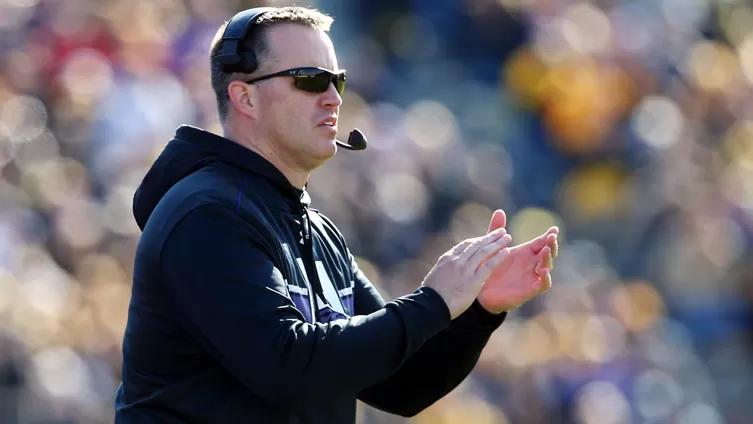Northwestern University has been at the center of controversy recently, with former coach Pat Fitzgerald filing a $130 million lawsuit against the school for wrongful termination. However, a recent ruling by Cook County Circuit Judge Daniel Kubasiak has denied Northwestern’s motion to dismiss the case, allowing it to proceed to trial in April 2025.
Fitzgerald, who had been the head coach of the Wildcats for 17 years, was initially suspended for two weeks and then fired last year in the aftermath of a hazing scandal. The school claimed that Fitzgerald had a responsibility to know about the hazing and should have put a stop to it. However, the former star linebacker at Northwestern during the 1990s has maintained his innocence and denies any wrongdoing.
In a statement released by his attorneys, Dan Webb and Matthew Carter, they said, “As we set forth in announcing our complaint in October 2023, defendants’ actions have exacted terrible, immeasurable costs to coach Fitzgerald, his family, and his career.” The statement went on to mention that the lawsuit includes allegations of breach of oral contract, breach of employment contract, intentional infliction of emotional distress, defamation, false light, and tortious interference with a business expectancy.
Northwestern University, on the other hand, stands by their decision to terminate Fitzgerald and is confident that they acted appropriately. In a statement, spokesperson Jon Yates said, “We remain confident that the university acted appropriately in terminating coach Fitzgerald and we will vigorously defend our position in court.”
This lawsuit has been a highly-publicized event, with many speculating on the outcome and the potential impact it could have on college sports. However, regardless of the outcome, it is essential to focus on the underlying issue – hazing in college sports.
Hazing has been a long-standing problem in college sports, and it is time for it to be addressed and eradicated. The fact that a coach, who has dedicated 17 years of his life to a university, could be fired for not stopping hazing is concerning. It highlights the need for stricter policies and enforcement against hazing, not just in sports but in all aspects of college life.
It is also important to acknowledge the toll this lawsuit has taken on Fitzgerald and his family. Being accused of wrongdoing and losing a job that he loved and excelled at is undoubtedly a traumatic experience. It is a reminder that the impact of hazing goes beyond just the immediate victims and can have long-lasting effects on individuals and their families.
As the case heads to trial, it is crucial for the truth to be revealed and for justice to be served. Whatever the outcome may be, it is essential for Northwestern University and other institutions to take a hard look at their policies and procedures to prevent hazing from occurring in the future. It is time for a change, and this lawsuit could be the catalyst for that change.
In the world of college sports, where winning is often prized above all else, it is refreshing to see a coach standing up for what is right and not being afraid to hold his institution accountable. Fitzgerald’s determination to see this case through to trial is commendable, and it sends a powerful message that hazing will not be tolerated.
In conclusion, while the lawsuit may have caused a stir in the college sports world, it has also brought attention to a prevalent issue that needs to be addressed. Let us hope that this trial leads to positive change and a safer environment for all athletes. And as for Fitzgerald, let us remember that he is more than just a coach – he is a role model, a leader, and a fighter for what is right.


